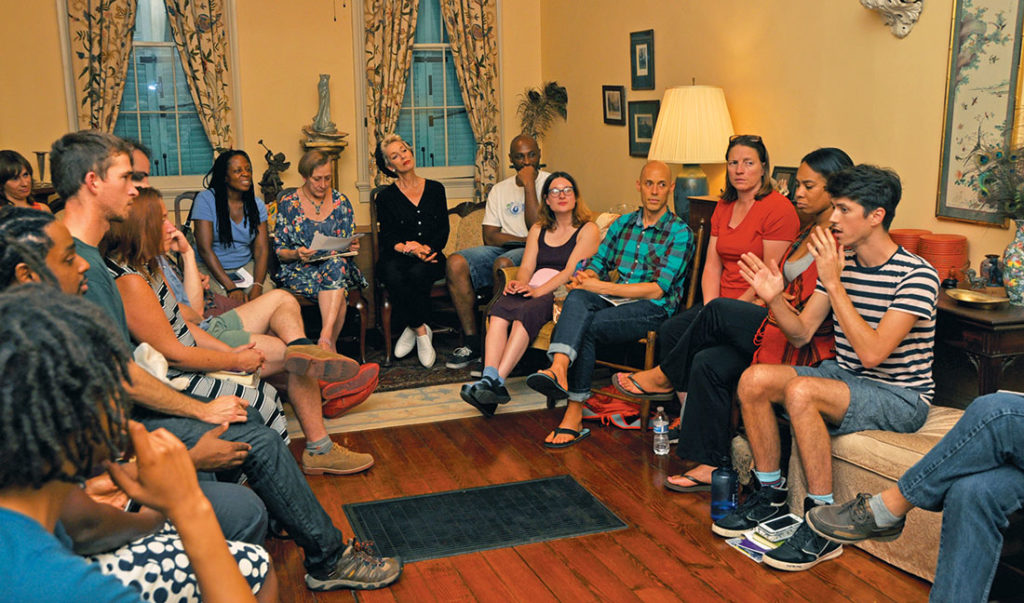(Photo above by Marco VDM / Getty Images)
Here are a few things to keep in mind as you begin your Buddhist practice.
Studying Buddhist Concepts
We study Buddhism so we can concretely know how to become better, stronger, happier people. Therefore, studying Buddhism isn’t about becoming a Buddhist scholar who can quote a random passage from an ancient book. Actually, to just apply one Buddhist idea to your everyday life is far more valuable than reading hundreds of pages of Buddhists writings. It’s about what you do, not how much you know.
It’s about what you do, not how much you know.
Do I need to know about Buddhism before I start chanting?
Buddhist Meetings
SGI Buddhists gather monthly in neighborhood discussion groups across the U.S. and the world. Think of these discussion meetings as a kind of Buddhist laboratory. We come together to share the results of our experiment with practicing Buddhism.
These meetings are a safe space where all are welcome and respected. Here’s what a typical meeting looks like: 1. Chanting Nam-myoho-renge-kyo together. 2) One person shares a story of how they applied Buddhism to their life and, as a result, overcame a problem or noticed a profound shift in their perspective. 3) Group discussion of a Buddhist concept. 4) Q&A.

RF Studio / Pexels
All that is required when you attend your first meeting is an open mind. Feel free to ask questions or not. Share what you are looking to get from a Buddhist practice or not. If you would like to simply listen to each person’s perspectives and experiences, that’s great too! SGI is not about formality or rituals.
The Buddhist Community

Photo by Martha Manzanares
Why do people join knitting circles? Though it is possible to knit on your own, having people around you who are with you on the journey, that support and inspire you, can take your knitting further than you ever thought it could!
The same is true for Buddhism. A real community where fellow Buddhist open our eyes to what’s possible when we chant and truly believe in ourselves, is essential for Buddhist practice. Our community is also one of zero judgment, where we support and encourage each other just as we are.
It’s also a community of equals, with no monks or authority figures who know the “secret of life” or have special powers to see into the future.
It seems to me that by having good friends … one has already halfway attained the Buddha way. Is this way of thinking correct?” Shakyamuni responds: “Ananda, this way of thinking is not correct. Having good friends is not half the Buddha way but all the Buddha way.
Shakyamuni, the historical Buddha, had a disciple who asked him, “It seems to me that by having good friends … one has already halfway attained the Buddha way. Is this way of thinking correct?” Shakyamuni responds: “Ananda, this way of thinking is not correct. Having good friends is not half the Buddha way but all the Buddha way.” (Bhikkhu Bodhi, The Connected Discourses of the Buddha: A Translation of the Samyutta Nikaya (Boston: Wisdom Publishing, 2000), “Maggasamyutta” [2 (2) Half the Holy Life], p. 1524)
